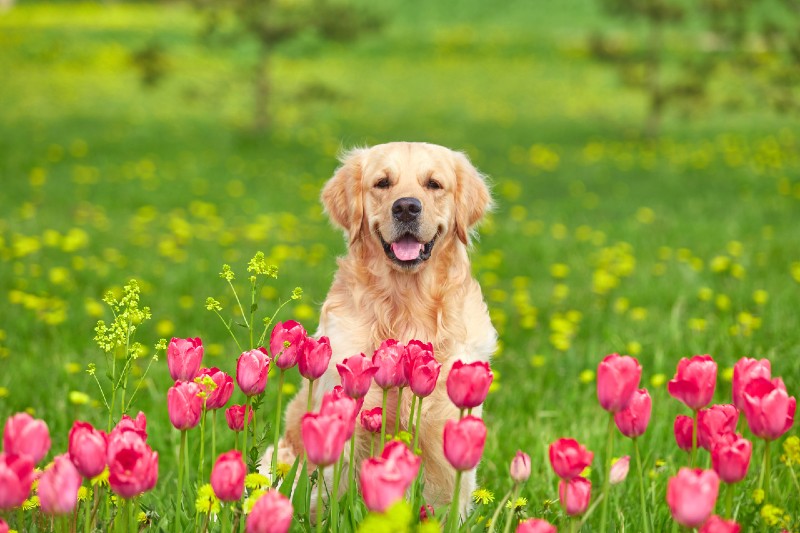Blog

Springtime hazards: How to avoid harming pets with plants
After a long winter cooped up in our home, we humans and our pets are ready to get out and enjoy the outdoors again. Whether we’re lounging in our yards, going for long walks, frolicking at the dog park, or even bringing a bit of spring into our homes in the form of bright floral arrangements, we’re bound and determined to get the most out of this long-awaited season.
But springtime brings with it some hidden hazards for our pets – many popular flowers and plants contain dangerous toxins that can sometimes be lethal. So before you make your gardening choice or before letting your pet explore, keep in mind these common plants that present potential problems for you and plan accordingly.
Easter Lilies. Easter lilies and certain other varieties of “true lilies” are beautiful reminders of renewal...but they are also extremely toxic to cats. Many cat owners bring these plants into their homes to decorate for the Easter season, unaware that eating their leaves, petals, and pollen can cause kidney failure in their pets. If you receive an arrangement that includes lilies, keep them in a room you can keep your cat from wandering into or where you can keep an eye on them at all times...better yet, consider displaying artificial plants instead!
Tulips. Especially in West Michigan, this flower is a true symbol of Spring and a staple of landscaping. Unfortunately, they have a hidden danger that can cause serious health problems. The bulbs contain toxins that can cause serious stomach or esophageal damage to your dog. If you’ve got a digger in your household, it might be best to keep tulips planted outside of the boundaries of your hidden fencing.
Lily of the Valley. Another Spring bloomer that is tempting yet highly dangerous to dogs and cats alike is the lovely Lily of the Valley. Unlike the Easter lily, this lily doesn’t cause kidney failure. It is, however, highly toxic and can cause vomiting, diarrhea, and more. If you see any sign that your pet has consumed this highly toxic plant, call your veterinarian or a poison hotline immediately.
The information above comes from the Pet Poison Helpline website, a helpful resource for pet owners. If you have any reason to suspect your pet has consumed a toxic plant, call your veterinarian immediately.


